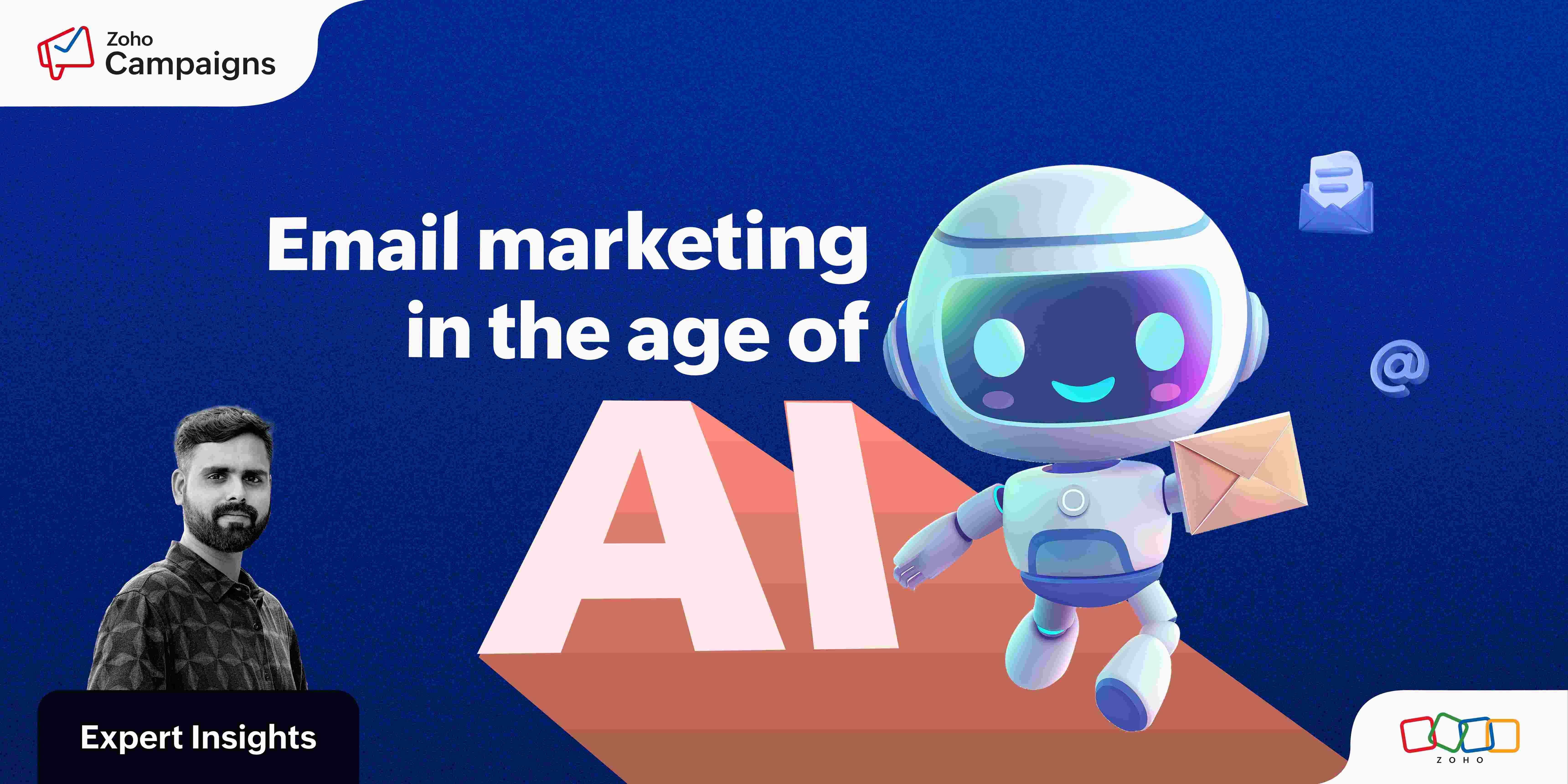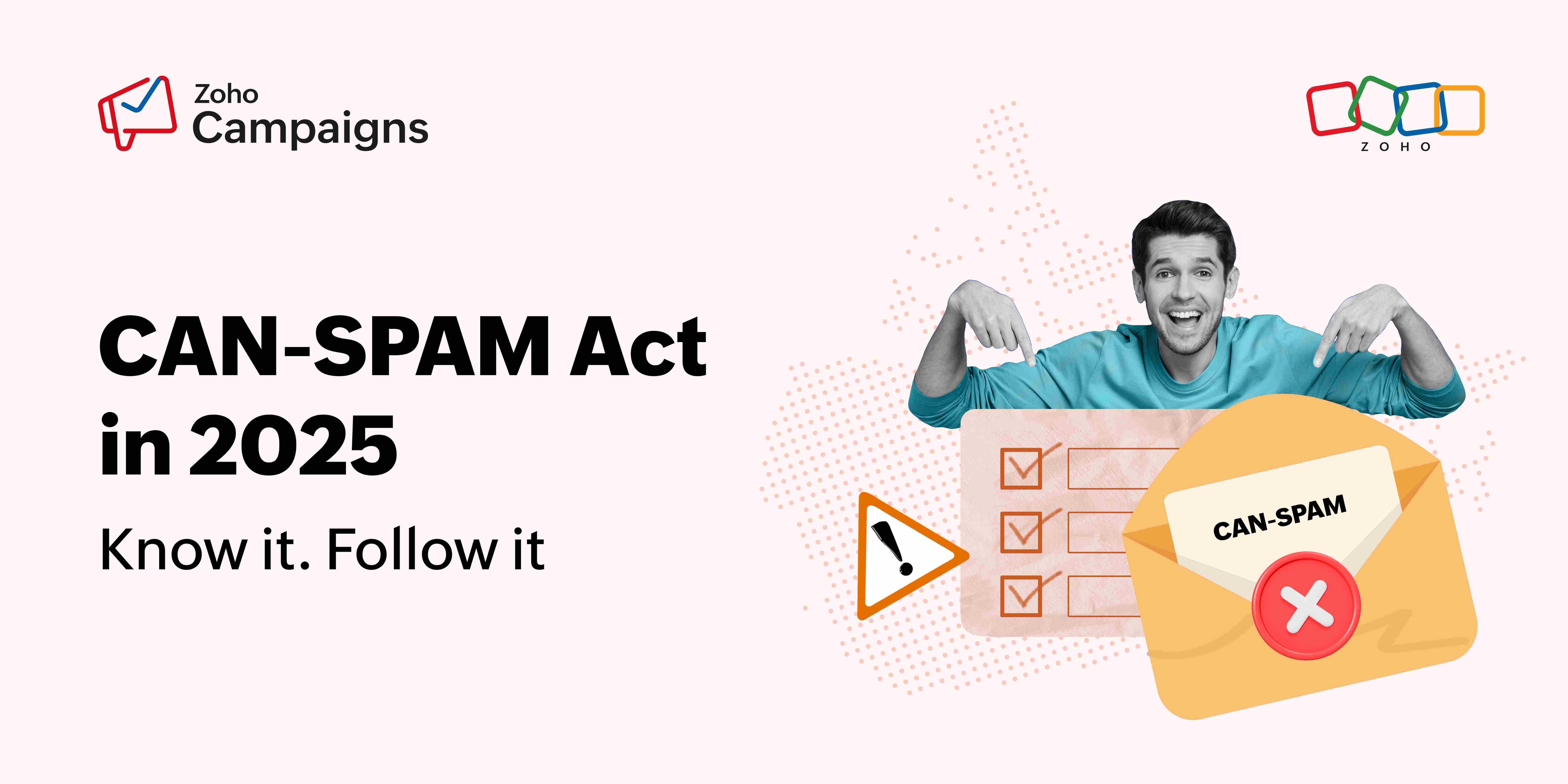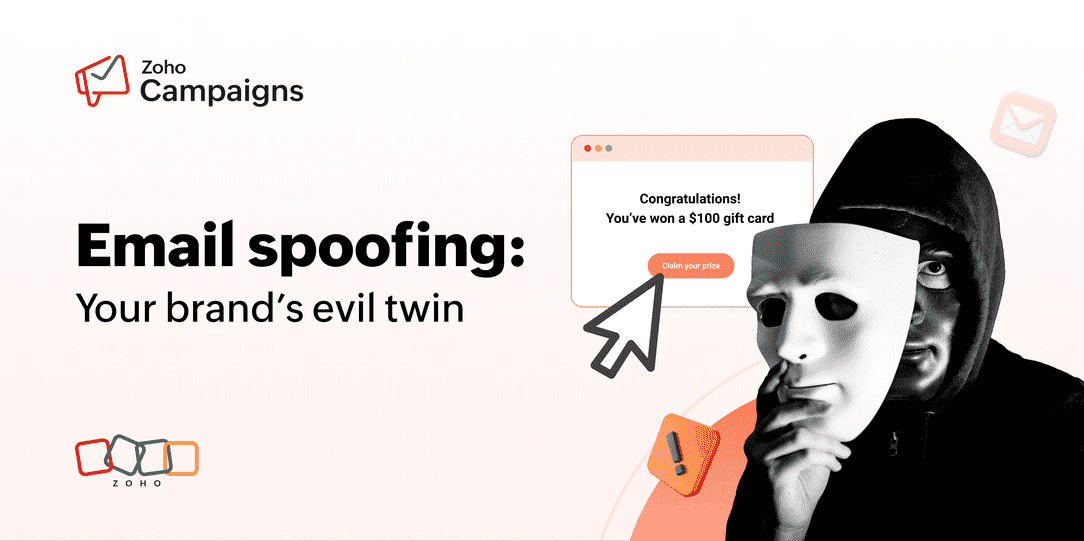- HOME
- Email Marketing
- Personalization vs Privacy: Finding the balance
Personalization vs Privacy: Finding the balance
- Last Updated : May 2, 2024
- 635 Views
- 7 Min Read

You walk into your usual neighbourhood store. It's a familiar scene. You know exactly where to head to and you also meet the usual faces at the store. These people not only help you pick what you want but perhaps know what you want since you have been a regular there. You exchange smiles with the staff at the checkout counter. They even ask you where you have been all this while! You walk out with your bags feeling good about yourself. After all, someone noticed that you were missing and knew what you like. Small things that add up to make a big deal.
Now imagine, if this staff at the counter tells you he saw you check out a similar product at a neighbouring store last week and you should perhaps get it from here, you'd be wary
This is pretty much how personalization works in any communication. Personalization is rooted in the idea that no two people are alike. It's always hard to stand out in the market and personalization helps in making the experience better for the consumer.
Why do we need personalization
1.Increased Relevance: In a world that is changing at lightening pace, its a constant fight to stay relevant. By personalizing marketing efforts, companies can deliver content and product recommendations that are more relevant to each customer's interests, behaviors, and demographics. Have you noticed how Amazon mails you a list of products regularly based on your purchase history. They see patterns and try to figure our what is more relevant for you as a customer. This relevance increases the likelihood of conversion as customers are more likely to engage with content that resonates with them.
2. Improved Customer Experience: Every business worth its salt is trying to ace the formula to retain their customers and improve their experience. Every customer loves being given exactly what they are looking for. Personalization empowers marketers to customize their communications and products to align with the unique requirements and preferences of each customer. Consequently, it cultivates a more captivating and pertinent experience for the customer, nurturing a deeper bond between the brand and the consumer. According to the Next in Personalization 2021 Report, companies proficient in showcasing customer intimacy achieve accelerated revenue growth compared to their counterparts. According to McKinsey's findings, 71% of consumers anticipate personalized interactions from companies.
3. Improved Engagement and Conversion Rates: When you receive messaging that is more aligned with what you are looking for, you are likely to respond positively and engage better with it. The same happens with personalized marketing messages, which are likelier to capture the interest of the audience. When customers feel that a brand understands their needs and offers solutions tailored to them, they are more likely to engage with the brand and make a purchase.
4. Building Customer Loyalty: Now let's not jump to a conclusion that personalization builds loyalty. The process is not as straightforward as it sounds. When you are able to engage and serve your customers on a sustained basis over a period of time, as we saw above, the customer too starts showing a preference for your business. This leads to repeat business as customers feel more connected to the brand. As per a survey by McKinsey, 72% of the respondents said they expect the businesses they buy from to recognize them as individuals and know their interests. They respond better when they know there is something beyond a transactional relationship.
5. Data-Driven Insights: Personalization relies heavily on data collection and analysis. By gathering data on customer preferences, behaviors, and interactions, marketers can gain valuable insights into their target audience, which become useful to build and improve one's marketing strategies, campaigns, and business performance.
It's also known now from the McKinsey survey that companies that grow faster drive 40% more of their revenue from personalization than their counterparts. These studies are ample proof to tell you why personalization in marketing is essential for creating meaningful connections with customers, driving engagement and conversions, and ultimately, fostering long-term relationships that benefit both the customer and the brand. But there is a twist in this tale.
Privacy Paradox
While people love messages and products that are personalized, too much of anything can go wrong. In marketing parlance, this phenomenon is called the Privacy Paradox, where consumers grapple with the tension between their craving for tailored content and their innate urge to safeguard personal data. According to findings from Accenture's 2016 Personalization Pulse Check report, nearly 66% of consumers who felt a brand's interaction was overly personal or intrusive cited the reason as the brand possessing information about them that they hadn't intentionally or directly provided. This often included instances like receiving recommendations based on purchases made elsewhere.
According to a survey by CISCO, over 76% of the respondents felt it was too hard for them to understand how their information was being used. For consumers, what companies are actually doing with their data remains a mystery. The same survey states that from a generational perspective, the privacy actives segment makes up an even larger share of younger consumers between the ages of 25 and 34.
Why privacy matters in email marketing
1. Respect for Users: Respecting users' privacy builds trust. When individuals provide their email addresses, they expect that their information will be handled responsibly. Violating their privacy can damage your brand's reputation and lead to a loss of customers.
2. Compliance with Regulations: There are regulations worldwide to protect customers from violation of privacy and before you go overboard in personalization of content, it helps if you can read up on local laws regarding that. Regulations, such as the General Data Protection Regulation (GDPR) in Europe and the CAN-SPAM Act in the United States, require businesses to obtain consent before sending marketing emails. Failing to comply with these regulations can result in legal consequences and loss of brand image.
3. Protection of Personal Information: Email addresses are personal information, and users have the right to control how their data is collected, stored, and used. Respecting their privacy means safeguarding this information from unauthorized access, misuse, or data breaches.
4. Long-term Relationships: Have you noticed how customers of Apple stand fiercely by the brand? Apart from developing a fondness for the product itself, Apple customers appreciate the fact that Apple's advertising platform does not track you. It does not link user or device data for targeted advertising. Apple also does not share user or device data with data brokers. This has helped Apple built trust over decades. Prioritizing privacy in email marketing helps foster trust and loyalty, leading to stronger relationships with your audience over time.
Prioritizing privacy in email marketing is essential for maintaining trust with users, complying with regulations, protecting personal information, enhancing engagement, and building long-term relationships with customers.
Finding the balance between personalization and privacy
Here are some strategies to achieve the balance between personalization and privacy in email marketing, which will ensure that customers feel valued and respected while also safeguarding their personal information.
1. Transparency: In 2022, search engine DuckDuckGo was hit by a tracking controversy when it was known that it allowed user data to be tracked by Microsoft owned products. But the company was quick in its response and shared the issues with the public and pledged more privacy and transparency. Being transparent about how you collect, store, and use customer data and outlining your privacy policy in your emails becomes extremely important if you take the privacy business seriously. This builds trust with your subscribers and demonstrates your commitment to respecting their privacy.
2. Permission-based Marketing: As a practice, send emails only to subscribers who have explicitly opted in to receive communications from you. Respect their preferences regarding the frequency and type of emails they wish to receive. This also means that you have to make the unsubscription process easy so that people can opt out any time they want to. You can learn more about permission-based marketing here.
3. Segmentation: In today's world of digital marketing, one should segment the email list based on criteria such as demographics, interests, and purchase history. This allows you to send targeted, relevant content to different groups of subscribers without compromising their privacy. For example, you can send personalized recommendations based on past purchases without revealing sensitive information. Using an email marketing solution like Zoho Campaigns solves this issue for you. Want to learn more about list segmentation strategies? Check out our blog on this topic!
4. Data Security: Invest in robust data security measures to protect customer information from unauthorized access or data breaches. Assure subscribers that their data is safe with you and that you take their privacy seriously.
5. Tailored Data Gathering: When crafting your email subscription forms, only request essential information that directly improves personalization. For instance, instead of asking for a subscriber's full address, only inquire about their zip code to localize content or offers.
6. Renewed Consent Practices: Implement a periodic consent review system to ensure subscribers still wish to engage with your emails. For instance, a clothing brand could send out an annual email asking subscribers to confirm their continued interest and update their style preferences.
9. Performance Testing and Subscriber Input: Regularly assess the effectiveness of your email campaigns and gather feedback from subscribers. For example, a software company could send out surveys after each email campaign to gauge satisfaction and preferences, while also using A/B testing to compare different subject lines or call-to-action buttons. Email marketing solutions like Campaigns let you do that.
10. Subscriber Education Initiatives: Educate your subscribers on the advantages of personalized content and how it enhances their interaction with your brand. An online bookstore could send out occasional newsletters explaining how personalized book recommendations are based on past purchases and browsing history, aiming to demonstrate the value of tailored content without compromising privacy.
By implementing these strategies, you can strike the right balance between personalization and privacy in your email marketing efforts, leading to more engaged subscribers and stronger relationships with your customers.



